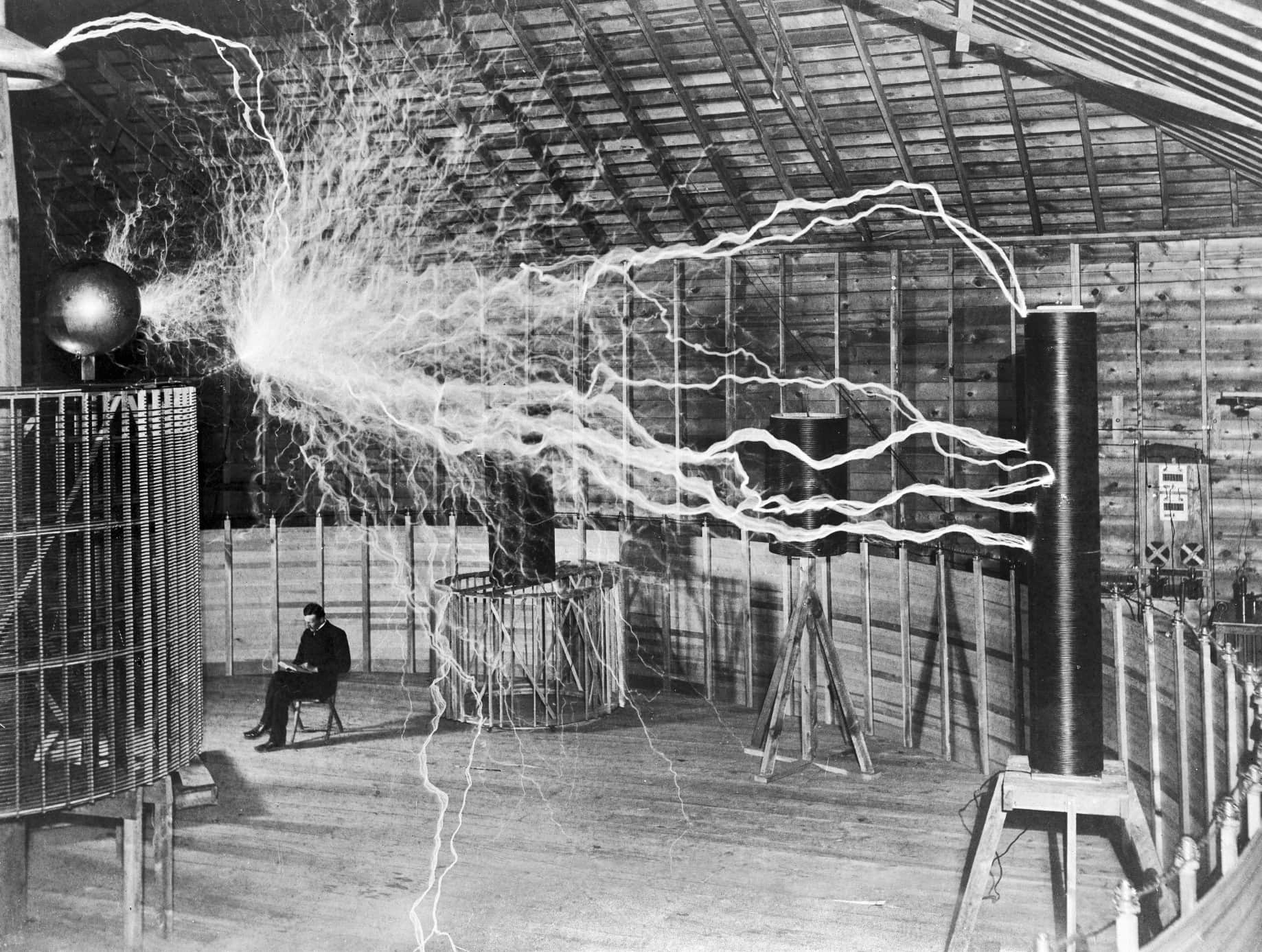After Sunday’s release of the eagerly awaited Donda, and the often derided but sometimes revered antics of its mastermind Kanye West, we take you through the other strange creative routines of history’s geniuses.

Nikola Tesla, circa 1890
These routines often seem to fall into one of several categories. The first being sleep: either plenty of it, lack of it, or holding steel balls while doing it.
This last one was a favourite of Thomas Edison, who would hold the metallic cylinders in his palms as he napped. As his hands relaxed when he drifted off to sleep, the balls would loudly clatter to the floor and wake him. Often, his unconscious mind would have provided a solution to his problem, as it chugged away in the midway between sleep and awake.
Lack of sleep seems a usual theme in the routines of geniuses: Nikola Tesla, for example, rarely sleeping more than two hours in a single night (though he did shamefully admit to ‘dozing’ from time to time to recharge his batteries). But this was a man whose timetabled eccentricities were not just confined to the bedroom. Oh no. During his second year of study at Graz, Tesla developed a passionate proficiency for billiards, chess, and card-playing, sometimes spending more than 48 hours in a stretch at a gaming table. On one occasion at his laboratory, Tesla worked for a period of 84 hours without rest.

Mr Kierkegaard
Kenneth Swezey, a journalist whom Tesla had befriended, confirmed that Tesla rarely slept. Swezey recalled one morning when Tesla called him at 3 a.m.: “I was sleeping in my room like one dead … Suddenly, the telephone ring awakened me … he spoke animatedly, with pauses, as he worked out a problem, comparing one theory to another, commenting; and when he felt he had arrived at the solution, he suddenly closed the telephone.” You can imagine Kanye doing a similar thing.
Tesla would have dinner at exactly 8:10 p.m., at Delmonico’s restaurant and later in his life, the Waldorf-Astoria Hotel. He dined alone, except on the rare occasions when he would give a dinner to a group – but this was only to meet his social obligations. Tesla then resumed his work, often until 3:00 a.m. And for exercise, Tesla would walk between around ten miles a day.
And keeping the best till last: he curled his toes one hundred times for each foot every night, saying that it stimulated his brain cells.
On the other hand, Charles Darwin could bear no more than a few hours of work a day. The time Darwin spent doing scientific work – theorising, writing, and experimenting – usually consisted of just three 90-minute periods a day. After a morning walk and breakfast, Darwin worked in his study from 8am to 9:30am, at which point he’d take a break to read, write letters, and listen to a novel being read aloud, and would sometimes smoke a solitary cigarette after luncheon. Even when guests were present, half an hour of conversation at a time was all that he could stand, because it exhausted him.

Charles Darwin – what a dude.
Søren Kierkegaard, Lewis Carroll, and Virginia Woolf would all write standing up. Woolf, who said that her writing was merely painting with words, would position herself at a lectern, next to the easel of her artist sister, Vanessa. (In contrast to Jane Austen, who preferring to be completely alone while she was working, would write at a writing slope in the dining room of her family’s cottage and ensured deliberately that the hinges on the door creaked so she could hear anyone entering her room.)
Friedrich Nietzsche would certainly have approved; he slammed his pal Gustave Flaubert in a letter for the writer’s affinity for lounging during working hours. “There I have caught you, nihilist!” he wrote. “The sedentary life … is the very sin against the Holy Spirit. Only thoughts reached by walking have value.”
While these three were working with their heads up, Igor Stravinsky thought with his head down. He would compose unfailingly for three hours a day – whether inspired or not – but when he was lost he’d pop into a quick headstand. Convinced that it was the only way to adequately clear his brain, he’d retain the pose for as long as it took him to feel like he could continue without writing some absolute tripe.

Virginia Woolf looking wistfully at a ceiling
Now, the coffee habits of geniuses have been intricately analysed, and while some may be hearsay, they still make for good stories. Honoré de Balzac may have drank 50 cups of coffee a day. To be fair to the bloke, he did have a prodigious output (some 90 novels – out of a planned 137).
The habit also came with a price, though as he was plagued through his life with cramps, headaches, and high blood pressure. Ludwig Van Beethoven would dexterously count out precisely 60 coffee beans each morning before brewing the cup that was his breakfast, but his routine extended to his “unusual bathing habits,” which facilitated a deep meditative state. He would alternate between pouring pitchers of water over himself while singing, and then pacing his room, eyes rolling, occasionally pausing to jot something down – and repeat.

Balzac clutching his chest pre-heart attack
Perhaps we conclude here, and ask ourselves how much of these people’s routines, habits, hobbies are genius, and how much is it their personal manifestations of madness?
Maybe we just let geniuses do their thing. Leave Kanye to do Kanye, who in one memorable epitaph, tells us “I hate when I’m on a flight and I wake up with a water bottle next to me like oh great now I gotta be responsible for this water bottle.”






1 Comment
nice